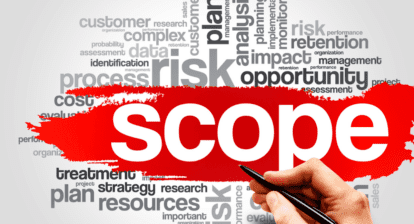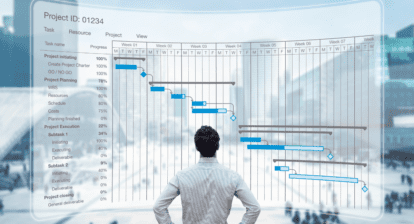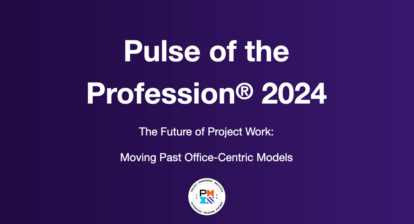Finish-to-Start Relationships
 The finish-to-start relationship states that one task must be completed before its successor task can begin. The network diagrams in this chapter all follow this simple assumption because it is the most common, but there are other types of relationships. Tasks with start-to-start (SS) relationships allow the successor task to begin when the predecessor task begins. Finish-to-finish (FF) tasks can start independently of each other, but the successor cannot finish until the predecessor finishes. The figures below show the value of using these other types of relationships.
The finish-to-start relationship states that one task must be completed before its successor task can begin. The network diagrams in this chapter all follow this simple assumption because it is the most common, but there are other types of relationships. Tasks with start-to-start (SS) relationships allow the successor task to begin when the predecessor task begins. Finish-to-finish (FF) tasks can start independently of each other, but the successor cannot finish until the predecessor finishes. The figures below show the value of using these other types of relationships.
Finish-to-start: The most common task relationships on the network are finish-to-start. The first task must finish before the next one can start.
Start-to-start: The successor task can start as soon as the predecessor task starts. The example shows a painting company, painting all the rooms on one floor of an office building. After the first room is prepared, both the prep crew and the paint crew can begin working at the same time. Overlapping the tasks reduces the total duration of the project.
Finish-to-finish: The successor task can finish only when the predecessor task is finished. The example shows the last two tasks of a design phase. Planning for the construction phase can begin before the final design approval, but it cannot finish until the design is complete.
Understanding Float
Almost every critical path schedule has float. There are actually four kinds of float that can occur in a schedule.
- Total float = Late start minus early start (LS-ES).
- Free float = Float that doesn’t affect subsequent activities.
- Independent float = Free float that cant be used by earlier activities.
- Shared float = Float that belongs to a path, rather than a single task.
This article is excerpted from the new book, The Fast Forward MBA in Project Management, 4th Edition. Copyright 2011. This material is used by permission of John Wiley & Sons, Inc.







